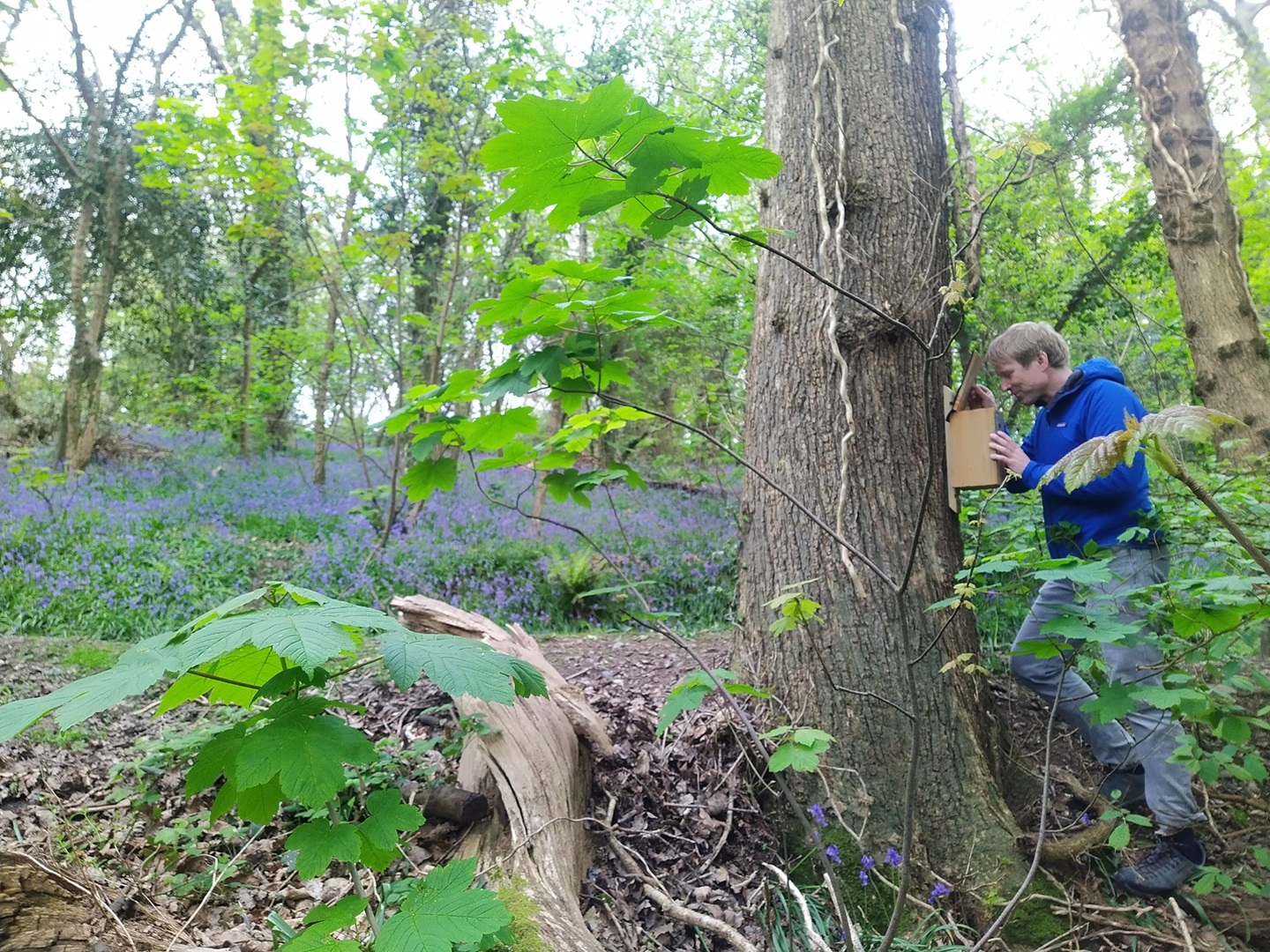Aberystwyth nest box project looks at climate change impact on bird breeding

Dr Peter Korsten checking one of the nest boxes in Aberystwyth
30 April 2024
New nest boxes have started appearing around Aberystwyth as part of a new study to understand the impact of climate change on competition between birds.
Wales’ climate is warming because of human activity, with 2022 and 2023 the warmest years on record.
Climate change is affecting the breeding patterns of different species of birds: great tits are laying their eggs two weeks earlier today than they were in the 1960s.
The new study by experts at Aberystwyth University will place a number of nest boxes at different altitudes in Aberystwyth and woodlands in the surrounding area.
The breeding patterns of great tits, blue tits and pied flycatchers are affected by temperature and changes in spring temperatures could lead to more competition between them for food as well as fewer eggs laid.
The research will also look at the effects of changing temperatures on their diets.
Dr Peter Korsten, from Aberystwyth University's Department of Life Sciences, said:
"It's exciting to get started on this project, as the first birds arrive at their new nesting sites this year. The purpose of the study is to improve our understanding of the effect that climate change has on the relationship between different species, particularly woodland birds. We know that a warmer spring is already leading to birds breeding earlier, and we hope to understand more about how this might affect the competition between different bird species.
“Forecasting the impacts of climate change on biological diversity is an important and urgent challenge. Studies of nest box-breeding birds have been crucial for documenting changes in breeding phenology in response to climate change, but the impact of ongoing environmental change on competitive interactions between species within ecological communities is unclear.
"More generally, it is important for us as a society to understand how climate change affects biodiversity. Looking to the future, I do hope this initial project will be the basis for developing a resource and longer-term studies for further research here in Aberystwyth.”
Isobel Griffith, a fourth year student at the University’s Department of Life Science studying wildlife conservation, is helping with the project. She said:
“I have really enjoyed checking the nest boxes this year, especially seeing the nests develop from week-to-week. It is great to have this chance to help with the research. I am passionate about biodiversity and learning more about how birds are impacted by climate change is fascinating.”
Second year student Rose Markham-Gill, who is also checking the nest boxes as part of the project, added:
“I have loved being part of nest box checks this year and look forward to gathering more data over the next few years for my dissertation and for Peter’s further research. It’s such a great thing having access to the nest boxes and watching spring unfold. Every week has been exciting and allowed me to appreciate nature in a way I never could have before.”
The research is support by funding from Aberystwyth University’s Rural Futures Hub.



